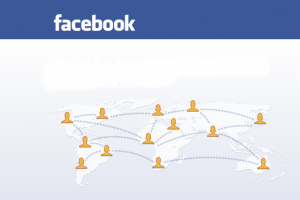"We have one in kindergarten, five in the first grade, and countless numbers throughout the school who have Facebook accounts. And with the permission of their parents," said Miller.
Saint Timothy falls under the Archdiocese of San Francisco's Department of Catholic Schools. Each school sets its own policy for online behavior, in line with the Archdiocese's overarching Code of Christian Conduct [pdf]. Diocesan rules essentially view underage Facebook users as having lied to get an account.
Jenny Luciano has two kids at Saint Timothy, ages six and 11. Luciano says she sees Principal Miller's point, but she also thinks parents should take the lead in keeping their kids safe on line.
"Those social filters become harmful; they become very knee-jerk, and we need to figure out how to both protect our kids as well as arm them with the tools that they need to be, you know, self-protective," said Luciano.
A recent study from the Pew Research Center confirms some of Luciano's concerns, saying that 88 percent of teens say they've witnessed online bullying. Fifteen percent were the target of bullying.
Pew also finds that most teens consider their peers to be mostly kind online, and their parents have taught them how to behave responsibly.
But Pew researcher Amanda Lenhart says teens still need all the good advice they can get.
"Youth pastors, coaches, neighbors, parents' friends, it really does take the entire village to help raise the digital child," said Lenhart
Principal Miller agrees.
"Catholic social teaching is one of the best-kept secrets in the Catholic Church."
Still, Catholics have been wrestling with how to behave online. Back in June Pope Benedict XVI gave a speech on the digital age for the 45th World Communications Day. The Pope said that digital interactions cannot replace the real world for spreading the Gospel, and he warned against the inauthentic, self-indulgent side of social networking.
However, the Pope added that there is what he called a "Christian way" of being online: honest, open, responsible and respectful.
"I would like then," the Pope said, "to invite Christians, confidently and with an informed and responsible creativity, to join the network of relationships which the digital era has made possible. This is not simply to satisfy the desire to be present, but because this network is an integral part of human life."
Principal Miller says her student's Catholic faith should be a good guide for their behavior on line. But after meeting with parents, the school's pastor approved a more relaxed policy.
Now rather than automatically suspending any student with Facebook account, a committee must consider each incident separately and recommend a response ranging from a reprimand to suspension in an egregious case, such as online bullying.
"For now," says Principal Miller, "Saint Timothy Catholic School is continuing to choose prevention over permission."


